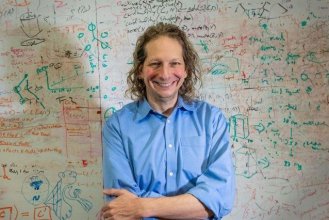Home Page Spotlights
Norway's King Harald showed off this yea'rs receipients of the Kavli prize including CBMM's Nancy Kanwisher (MIT) and Winrich Freiwald (The Rockefeller University) for their contributions to neuroscience.
In collaboration with colleagues from Google DeepMind, MIT, UC Berkeley, and UCL, the Cooperative AI Foundation is excited to present the Concordia Contest as part of NeurIPS 2024.
"for the discovery of a highly localized and specialized system for representation of faces in human and non-human primate neocortex."
Three neurosymbolic methods help language models find better abstractions within natural language, then use those representations to execute complex tasks.
Who Owns Knowledge Theme of the Third Edition of the International Festival of Economics – from May 30th to June 2nd 2024 in Turin
Could an artificial neural network connected to the brain of a living animal improve its performance on a task, such as the ability to find food? A strength of biologically based intelligence is that it performs well in novel situations by applying ...
A study of people in 15 countries reveals that while everyone favors rhythms with simple integer ratios, biases can vary quite a bit across societies.
Designing machines to think like humans provides insight into intelligence itself
History and future of ChatGPT and its sisters in the book just published by the Italian scientist who became famous at the Massachusetts Institute of Technology in Boston. «The genie is out of the bottle, but humans are more dangerous than robots»
Join us on a journey through the history of artificial intelligence (AI) from its early conceptual foundations to today’s Gen AI breakthroughs and tomorrow’s potential futures with Amnon Shashua and Tomaso Poggio on April 18th.
Joel Oppenheim was a wise and generous man. We were fortunate to work with him when he joined the CBMM External Advisory Committee (EAC) at its inception in 2014, and got to know him well...
More than 80 students and faculty from a dozen collaborating institutions became immersed at the intersection of computation and life sciences and forged new ties to MIT and each other.
Rodney Brooks, co-founder of iRobot, kicks off an MIT symposium on the promise and potential pitfalls of increasingly powerful AI tools like ChatGPT.
Robots that can fit multiple items into a limited space could help pack a suitcase or a rocket to Mars.
Tenenbaum is best known for theories of cognition as Bayesian inference, with a focus on explaining how humans can learn so much so quickly, from so little data.













